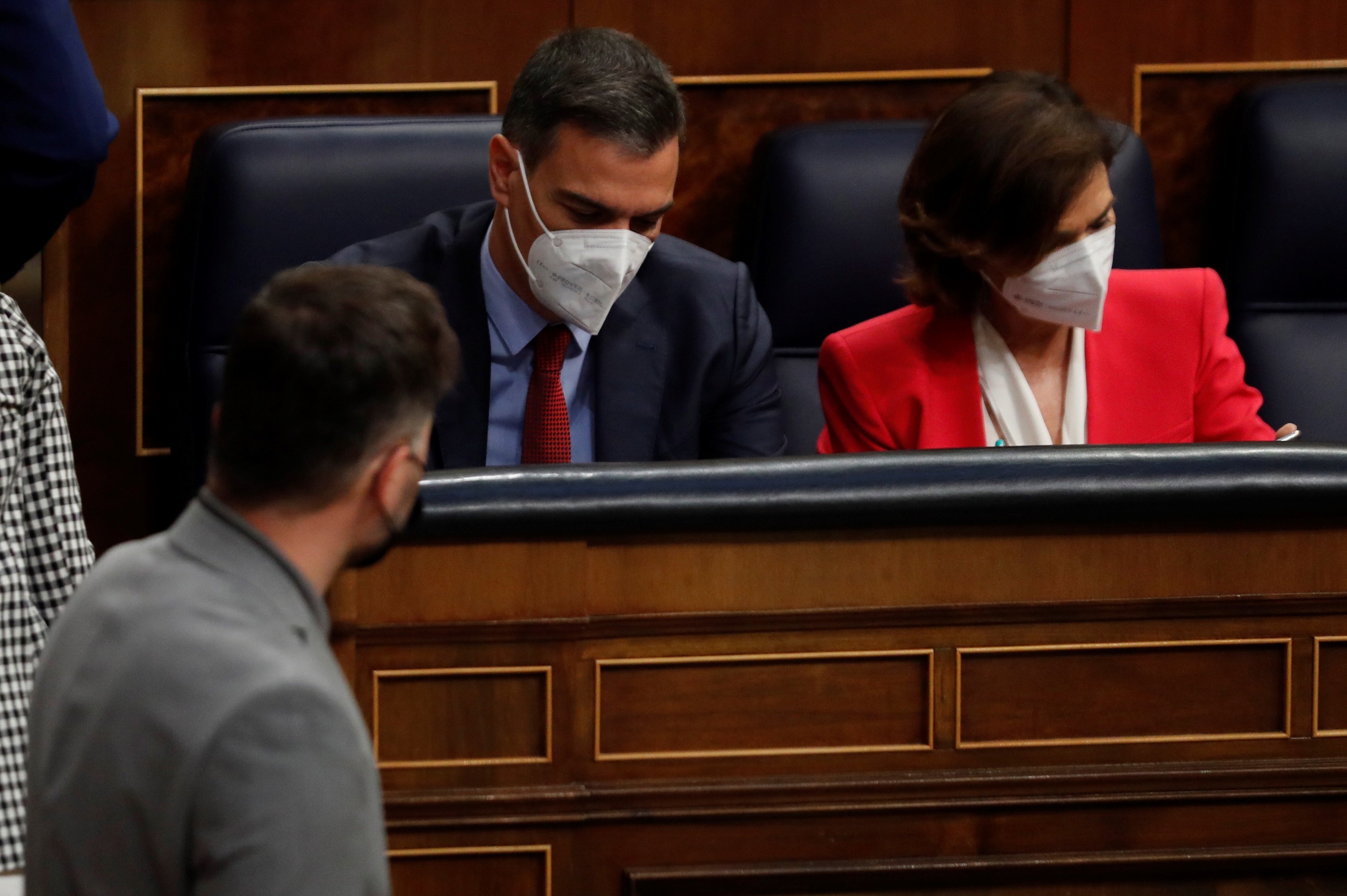The first poll for 2022 from Spain's public polling organization, the CIS, and, on the face of it, some things haven't changed much. The order of the parties is unchanged, with Pedro Sánchez's Socialists (PSOE) still set to finish as largest party in a hypothetical general election and maintain a considerable distance ahead of the second-placed Popular Party (PP) of Pablo Casado - still more than seven percent. But at the mid-point of Sánchez's theoretical four-year legislature, with the minority coalition government under siege over its planned labour reform, there are also other readings. For example, all the parties that are propping up the government in the Congress of Deputies have gone up in voter support, while on the right, Ciudadanos (Cs) is sinking into irrelevance, on the verge of missing out on representation altogether. The survey was conducted between 3rd and 14th January via a sample of 4,000 interviews.
According to this poll, if Spanish general elections were held today, Pedro Sánchez's PSOE would win them again, with 28.5% of the vote, and would rise by 0.5% compared to the December poll and almost one percent in two months. Pablo Casado's PP would also regain ground, with a 0.7% rise to 21.5%. Thus, the distance between Sánchez and Casado is seven points, two-tenths of a point less than the last survey. The also-rans in the election horse-race would also cross the line in the same order as a month ago: third position for far-right Vox, with 14.7% (up 0.1%), and fourth for junior government partner Unidas Podemos, with 13.1%, which loses almost the same amount as what the Socialists gain.
On the other hand, the parliamentary parties outside the government but whose support to Pedro Sánchez in Congress is essential would all win. This is the case of the smaller left-wing group Más País i Compromís, which would rise from 2.2% to 2.8% in voting intention - without taking into account any potential effect of a mooted re-grouping under current Unidas Podemos minister Yolanda Diaz. The same goes for Catalonia, where ERC would rise by 0.5% to reach 3.0%, as a percentage of the vote for the whole of Spain. And in the Basque Country, where the Basque Nationalists rise one-tenth of a point to 1.3% and EH Bildu do the same to reach 0.9%. As for other pro-independence parties, Junts would remain the same, at 1.4%, and the CUP would drop by one-tenth to 0.7%.
If the parties who have helped to form and sustain the PSOE-Podemos executive win, Ciudadanos is in free fall, despite the party's attempt to turn around its fortunes by supporting labour reform. The party led by Inés Arrimadas would fall by almost two percent (1.9%) in a month, sinking to 4%. Although this is a Spain-wide voting forecast, it should be remembered that the minimum threshold for representation is 3%.
Díaz beats Sánchez
As for the rating given by voters to political leaders, as usual, none of the main Spanish party figureheads pass the examination set by the pollsters. But, as in previous CIS polls, a pattern is repeated. The second deputy prime minister, Yolanda Díaz, with 4.82 out of 10, does better than her boss in the executive, prime minister Pedro Sánchez, who gets a rating of 4.34. The distance widens by 0.2 in a month. Behind them would be Más País leader Íñigo Errejón (4.05), Inés Arrimadas of Cs (3.59), the PP's Pablo Casado (3.37) and, in last place, the Vox leader Santiago Abascal (2.88). Unlike previous CIS polls, this time Yolanda Díaz also surpasses Pedro Sánchez in the voter's assessment of the leaders' handling of the pandemic.
Belarra, bottom of the class
This CIS poll is one of the occasional surveys that also invites voters to rate government ministers. Once more, the podium is occupied by defense minister Margarita Robles (5.35), second deputy PM Yolanda Díaz (5.22) and first deputy PM Nadia Calviño (5.15). On the other hand, the worst score belongs to social rights minister and Podemos secretary general, Ione Belarra, with 3.8, followed closely by Alberto Garzón, with 3.95. The meat crisis may have trimmed down the rating of Spain's minister of consumer affairs, but not much. Since the last poll which asked about ministerial performance, in October, he has only slipped 0.02.

